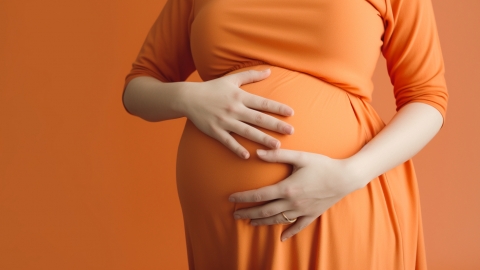Why does the mouth become bitter or lose taste after pregnancy?
After becoming pregnant, a bitter or tasteless sensation in the mouth may be caused by hormonal changes, improper diet, intrahepatic cholestasis of pregnancy, gastritis, or oral inflammation. Symptoms can be improved through dietary adjustments, oral hygiene, and medication. If symptoms persist or are accompanied by skin itching or abdominal pain, prompt medical attention is necessary.
1. Hormonal changes: During pregnancy, elevated levels of estrogen and progesterone can affect gastrointestinal function and taste nerves, leading to a bitter taste and reduced sense of taste, usually without other discomforts. It is recommended to eat small, frequent meals, choose light and easily digestible foods, and take a walk after meals to aid digestion.
2. Improper diet: Long-term consumption of spicy or greasy foods, or insufficient water intake, can cause dryness of the oral mucosa and internal heat accumulation in the gastrointestinal tract, resulting in a bitter taste and loss of taste. It is advised to drink more water, consume more fresh fruits and vegetables, reduce intake of spicy and greasy foods, and maintain a light diet.

3. Intrahepatic cholestasis of pregnancy: Impaired bile excretion during pregnancy leads to increased bile acids, which stimulate the mouth and cause bitterness, often accompanied by skin itching and jaundice. It is recommended to take medications such as ursodeoxycholic acid capsules, ademetionine disulfate tosylate enteric-coated tablets, and vitamin C tablets under medical supervision to alleviate symptoms.
4. Gastritis: Slowed gastrointestinal motility during pregnancy, Helicobacter pylori infection, or acid reflux can cause fermentation of stomach contents, leading to a bitter taste and altered taste sensation, along with bloating and heartburn. Under medical guidance, medications such as hydrotalcite chewable tablets, omeprazole enteric-coated capsules, and bifid triple viable capsules may be used to improve symptoms.
5. Oral inflammation: Poor oral hygiene during pregnancy can lead to bacterial growth and conditions such as gingivitis or periodontitis. Inflammation can cause a bitter taste, bad breath, and reduced taste sensitivity, often accompanied by red and swollen gums. Under medical advice, treatments such as compound chlorhexidine mouthwash, amoxicillin capsules, and vitamin B2 tablets may be used to relieve symptoms.
Maintain good oral hygiene by brushing teeth morning and night and rinsing after meals. Drink plenty of water and urinate frequently to promote metabolism. Choose foods with a pleasant sweet-sour flavor to stimulate appetite, maintain regular sleep patterns, and engage in moderate physical activity to enhance comfort during pregnancy.




